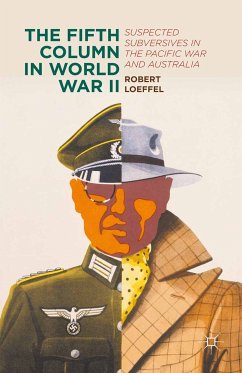
Konrad Morgen (eBook, PDF)
The Conscience of a Nazi Judge
Versandkostenfrei!
Sofort per Download lieferbar
32,95 €
inkl. MwSt.
Weitere Ausgaben:

PAYBACK Punkte
16 °P sammeln!
Konrad Morgen: The Conscience of a Nazi Judge is a moral biography of Georg Konrad Morgen, who prosecuted crimes committed by members of the SS in Nazi concentration camps and eventually came face-to-face with the system of industrialized murder at Auschwitz. His wartime papers and postwar testimonies yield a study in moral complexity.
Dieser Download kann aus rechtlichen Gründen nur mit Rechnungsadresse in A, B, BG, CY, CZ, D, DK, EW, E, FIN, F, GR, HR, H, IRL, I, LT, L, LR, M, NL, PL, P, R, S, SLO, SK ausgeliefert werden.












